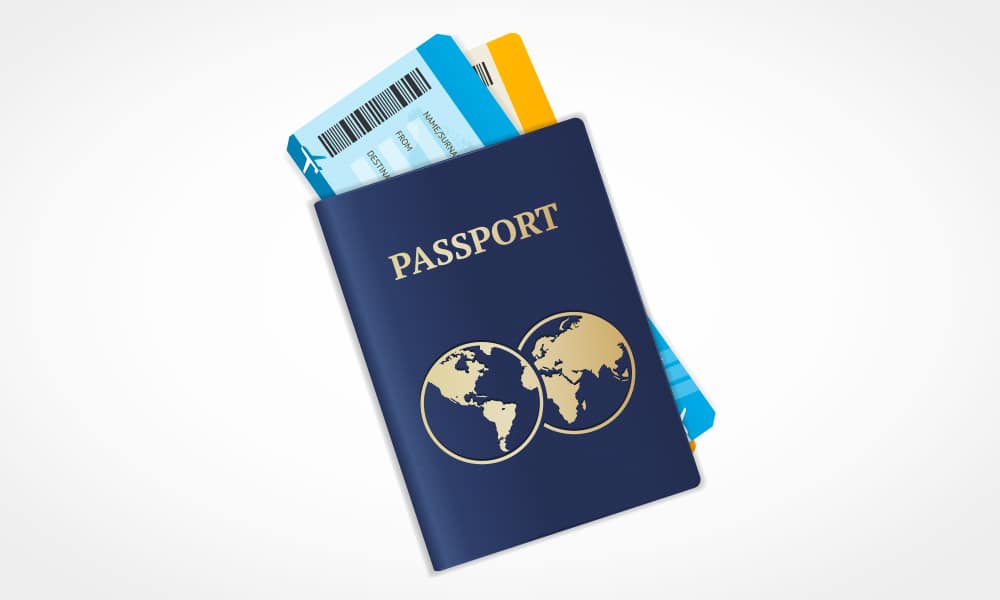Travel Insurance Plans on PolicyBazaar#1
- Individuals
- Sr. Citizens
- Students
Impact of Coronavirus on Travel Industry
Since December 2019, Coronavirus quickly pushed the world towards death and complete lockdown. Due to its highly contagious and dangerous symptoms, it emerged as a global threat bringing every person to a standstill. The coronavirus spread across more than 180 countries across the globe. The World Health Organisation (WHO) on 11 March 2020 declared coronavirus disease a pandemic.
COVID-19 has an incubation period of up to 14 days with an average of five days. Its shows flu-like symptoms like dry cough, and high fever along with difficulty in breathing, etc.
Several countries including China, Italy and the US declared a national health emergency during the pandemic. India too put several restrictions on people within the country and its citizens coming from abroad to contain the spread of coronavirus.
Coronavirus: At a Glance
COVID-19 (SARS-CoV-2) was identified in December 2019. Since the 2019 outbreak, Coronaviruses have caused irrepairable loss because of their highly contagious nature. The virus can cause severe respiratory issues in infected people, in many cases resulting in death. Further mutations and rapid transmission caused the infection to be declared as pandemic.
-
COVID-19 Symptoms
The severity of infection ranges from very mild to extremely severe, sometimes fatal. Symptoms include: fever, shortness of breath, chills, headache, cough, chest pain and more. The symptoms can vary from person to person; people with comorbidities should take extra precautions and proper medical help if they suspect an infection.
-
Coronavirus Vaccination
Thanks to the scientific prowess, global vaccination programs started in 2021 and many people are now vaccinated against the virus. Covaxin, Covishield, and Sputnik-V have been available to Indian adults aged 18 years and above since 2021.
-
COVID-19 Travel Insurance Coverage
The pandemic saw many countries undergoing lockdown. Among all this uncertainty, many people turned to travel insurance that covers coronavirus disease and related emergencies.
Under this coronavirus travel insurance available, people were again able to travel with a safety net especially when it came to COVID-19-related emergencies including cancelled trips, flight cancellations due to COVID-19 infections, and coronavirus treatment costs and more.
List of Countries Accepting Indian COVID-19 Vaccination Certificates
The countries that have accepted the COVID-19 vaccination certificates of India are as follows-
| Continents | Countries |
| Asia | Bangladesh, Sri Lanka, Nepal, Azerbaijan, Kazakhstan, Russia, Kuwait, Oman, the UAE, Bahrain, Qatar, Maldives, Turkey, Kyrgyz Republic, Armenia, Iran, Lebanon, State of Palestine, Syria, Georgia and Egypt. |
| Europe | UK, France, Germany, Belgium, Ireland, Netherlands, Spain, Georgia, Hungary, Serbia, Poland, Slovak Republic, Slovenia, Belarus, Croatia, Bulgaria, Greece, Russia, Finland, Greece, Finland, Estonia, Romania, Moldova, Albania, Kazakhstan, Czech Republic, Switzerland, Liechtenstein, Sweden, Azerbaijan, Austria, Andorra, Montenegro, Ukraine and Iceland. |
| North America | United States of America, Canada, Jamaica, Bahamas, Mexico, Panama, Costa Rica, Nicaragua, Commonwealth of Dominica, Guatemala, El Salvador, Honduras, Dominican Republic, Haiti. |
| South America | Peru, Brazil, Guyana, Antigua & Barbuda, Argentina, Uruguay, Paraguay, Columbia, Trinidad & Tobago. |
| Africa | Mauritius, Mali, Ghana, Sierra Leone, Angola, Nigeria, Benin, Chad, Eswatini, Rwanda, Zimbabwe, Uganda, Malawi, Botswana, Namibia, Comoros, Egypt, South Sudan, Tunisia, and Sudan |
| Australia | Australia |
Coronavirus Travel Advisory: What Has Changed Now?
For approximately two years, travel restrictions were placed by almost all the countries. Locals and foreigners were advised not to venture in or out of their countries, even cities. Given the huge task, governments across the world rolled out several travel advisories, including thermal screening, proof of negative COVID-19 RT-PCR, strict quarantine and mandatory travel health insurance.
Thankfully, a majority of nations have lifted or eased these restrictions and people can once again travel freely with regional restrictions in place. As of now:
-
Most countries required an International vaccine certificate to prove the traveller has received necessary doses of the approved vaccine.
-
You can download the relevant international travel certificate from CoWin after linking your passport with the COVID-19 vaccination certificate.
-
For domestic travel, a few Indian states may have varying requirements:
- Travellers should have Arogya Setu App downloaded in their phones.
- Travellers should also web-check in and wear masks at all times.
- Negative RT-PCR report is required by few states upon arrival.
Impact of Government Shutdown on Indian Travel Industry
The COVID-19 pandemic negatively impacted the worldwide tourism industry including India's. In the third week of March 2020, the hotel sector faced a reduction of more than 65% in occupancy levels than in the year 2018. Here is how the Government shutdown impacted the travel industry:
-
The Government shutdown resulted in intermittent closing of country borders, thus, bringing international travel to a standstill.
-
There was also a significant decrease in business travels due to partial as well as complete shutdowns in India and other countries.
-
There was also a significant decrease in group and leisure travels due to the fear of being infected.
-
The travel industry, including airlines, hotels and restaurants, was also estimated to shrink by 50% in 2021, which meant a substantial loss of jobs and revenue across the sector.
-
Moreover, inbound and outbound travel witnessed a significant low due to the Government shutdown in the country.

The government shutdowns followed by multiple restrictions have also changed the experience of travelling for travellers. With testing, thermal screenings, social distancing and masking, the new normal has brought a different routine for travellers all over the world.
Travel Insurance Awareness Post COVID-19
The sheer unpredictability because of the last two years has surely taught us a lesson or two. Thankfully, we have something reliable to keep us safe from such scenarios. More and more people seem to be waking up to the benefits of insurance, here are some of the most common reasons:
After 2 years of absolute unpredictability, the insurance sector, including travel, was quick to adapt itself to the need of the hour. They started offering benefits for trip cancellations, quarantine costs and more to improve the scope of their coverage. While the pandemic seems to be in its last stages, people aren’t likely to leave anything to chance and prefer insuring their trips.
Even after travelling far to reach a destination, people faced a lot of uncertainties due to change in entry requirements, surge in cases, etc. Top them with inflexible rules imposed by tour operators, hotels etc. and planning a trip was a gamble not everyone could afford. Travel insurance can protect people from many such uncertainties, increasing its awareness.
Earlier, only Schengen and a handful of countries had compulsory travel medical insurance. Without Schengen travel insurance, entry to these countries was not possible. After the pandemic, many governments mandated travel health insurance to support those foreign nationals who would test positive on their shores.

Travel Insurance for COVID-19: Things to Consider
While most countries have eased down these entry requirements, an international travel insurance is a great way to safeguard your journey abroad from sudden medical, legal and journey-related emergencies. However, some things need to be kept in mind:
-
Hospitalization Due to Coronavirus
Coronavirus travel insurance will cover emergency hospitalization and medical treatment expenses incurred on the treatment of COVID-19 during the trip. Whether it’s a domestic travel insurance policy or an international travel insurance plan, emergency medical expenses will be covered as long as the policy was purchased before the government had imposed travel restrictions due to coronavirus disease. However, for clarity, insured travellers should check with their travel insurance company to know about the cover for quarantine.
-
Travelling Despite Government Regulation
If an advisory is issued for a country the insured traveller is travelling to and they still go ahead with their trip, then any COVID-19 related emergency they face won’t be covered under the coronavirus travel insurance.
Reason being, one of the insurance companies will cover the insured taking an intentional risk and thus, they would be responsible for any monetary losses incurred as an outcome.
COVID-19 Aftermath: Dos and Don’ts for Future Travel
Do's for Travelling Post-Pandemic
It is advisable to strictly follow COVID-19 protocols and keep yourself safe while travelling, abroad or in India. Especially with holiday season and festivals, it is important to take extra precautions. Below are some basic steps to take while travelling:
Maintain Hygiene
It is utterly important to practice hygienic habits while travelling. Even small habits like washing your hands properly, trimming long nails, and covering your nose & mouth while sneezing or coughing can make a big difference in keeping you safe.
Practice Social Distancing in Public Places
The coronavirus spreads through an infected person, usually, when they breathe, talk, coughs, or sneezes. Also, infected people may not show symptoms of this disease initially. Therefore, it is advisable to keep at least 6 feet distance from other people when travelling in public places, especially for people who have low immunity or pre-existing medical conditions. While the cases have reduced and the symptoms have become milder, social distancing is one of the best way to avoid getting any infections.
Get Yourself Vaccinated
Almost all countries now need foreign travellers to be vaccinated. Get yourself fully vaccinated against COVID-19 at least 4 weeks before planning a trip. Vaccination protects you against COVID-19 and reduces the chances of contracting the coronavirus. Therefore, get the required doses of the COVID-19 vaccine as early as possible to travel stress-free.
Make sure to get the required booster dose incase a country requires it. Moreover, to avoid paying for any medical emergency in a foreign land, buy travel medical insurance, which also covers the COVID-19 disease.
Carry Your Essentials While Travelling
Other than taking precautions, it is important to carry your essentials during the pandemic. You should carry essentials, like a couple of face masks, hand sanitizer, alcohol-based tissue wipes, phone sanitizer, essential gadgets such as a power bank, laptop, tablet, charger, and smart toiletries like toothbrush, towel, & pair of slippers, etc.
Stay Healthy
Stay physically active, eat healthy food and keep yourself hydrated during the pandemic. Do 30 minutes of moderate-intensity physical activity daily and 15-20 minutes of a brisk walk. Also, drink adequate water instead of added-sugar beverages and alcohol. Eat a balanced diet full of healthy calories, proteins, minerals, vitamins, and other nutrients.
Don'ts for Travelling Post-Pandemic
Prevention is better than cure, and there is a lot we can do to ensure there are no re-infections or health complications because of carelessness:
Most people have a habit of touching their faces often. Research has shown that we are particularly prone to get infected from COVID-19 by touching our mouth, nose, and eyes. That is why avoid touching your face unnecessarily to reduce getting infected with the novel coronavirus.
Wearing face masks is advised as part of personal hygiene and as a public health measure to control the spread of coronavirus disease. Wear a well-fitted N95 or surgical mask to avoid coming in direct contact with the virus. Also, clean your hands regularly, maintain social distancing and cover your face with a handkerchief while sneezing and coughing.
Adhere to government health and safety regulations regarding COVID-19. Read the government guidelines carefully before leaving your country. Moreover, if you are travelling abroad, rely on the official sources for information instead of believing everything you read on social media or forwarded messages.
There is currently no evidence that someone who has recovered from COVID-19 or is fully vaccinated will not get infected again. So, do not assume that you are immune to COVID-19 in either case.
If you fall sick in another city, seek medical help and quarantine yourself when you test positive. It is also advisable to buy travel medical insurance to cover all your incurred medical expenses in case you are hospitalized due to COVID-19 in a foreign land.
Travel insurance companies

Aditya Birla

Bajaj General

Care

Cholamandalam MS

Digit

Future Generali

HDFC ERGO General

ICICI Lombard

IFFCO Tokio

National Insurance

New India Assurance

Niva Bupa

Oriental

Reliance General

Royal Sundaram

SBI General

Shriram General

Star

Tata AIG

United India

Universal Sompo

Zurich Kotak












